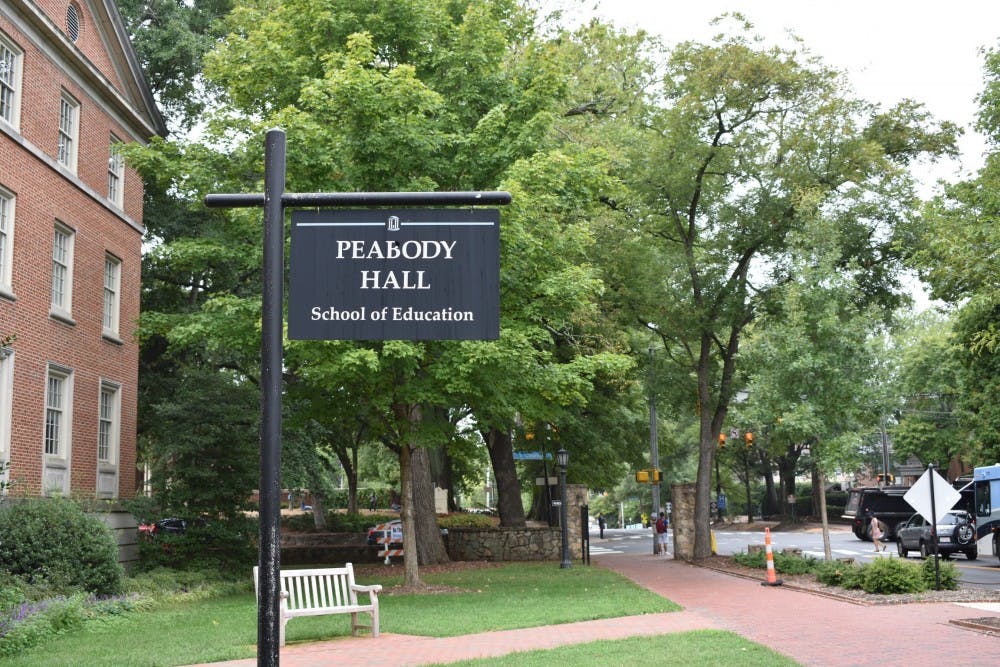The UNC Latinx Education Research Hub brought the idea of spatial justice to life for third-year education Ph.D. student Lucia Mock. It was there she found a community and a refuge on campus.
This year, the Hub planned to continue their research and hold xarlas, or chats, centered around different issues facing the community, including Silent Sam, the family separation crisis and fitting into a predominantly white university. However, the University took away the Hub’s former space in UNC's School of Education in mid-July. UNC informed members that they needed to remove their belongings and that the space would be used as part of an IT office, creating concern from students and faculty alike that the University had taken away a space for a marginalized community.
“I was shocked, but then not surprised because it's just in line with what our administration does,” Mock said. “They use a lot of language around social justice and equity, but at every turn they seem to undermine that with their actions. On a personal level, it was like having a really important element of my identity once again sort of deemed not worthy enough.”
On Monday, the University alerted Mock and others associated with the Hub that they would receive a temporary space in Peabody Hall. But for Mock and other members of the UNC community, questions as to why the University took the space away to begin with remain.
Jill Hamm, associate dean for research and faculty development in the School of Education, said that after the Hub’s former faculty director, Juan Carrillo, moved to another university, the Hub was in transition. Hamm said that while renovating Peabody Hall with a new graduate student research space, the School had to move its IT offices to the hallway where the Hub was previously located. She said many offices moved around because all spaces in Peabody are temporary.
“The idea of there being a permanent space for any initiative or any faculty, staff or student is not really the way we're able to operate just because we have so many demands on our building and just not that much space to work with,” Hamm said.
Mi Pueblo, another Latinx-based student organization, faced similar space issues last year. Senior Felipe Sanchez, the outdoor activities committee chairperson for Mi Pueblo, said his organization was working with the University to create a more autonomous space that they could decorate in the Carolina Latinx Collaborative. CLC is housed in Craige North Residence Hall where residents often study and other groups hold meetings.
“It's supposed to be our space, but it's more of just like a common space,” Sanchez said.
Mock said she believes the University gave the Hub temporary space in an attempt to placate members and avoid a public relations nightmare.



